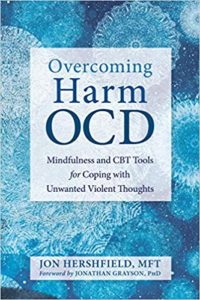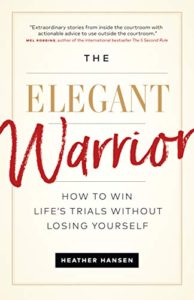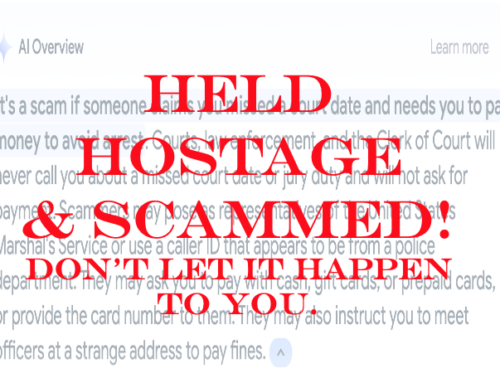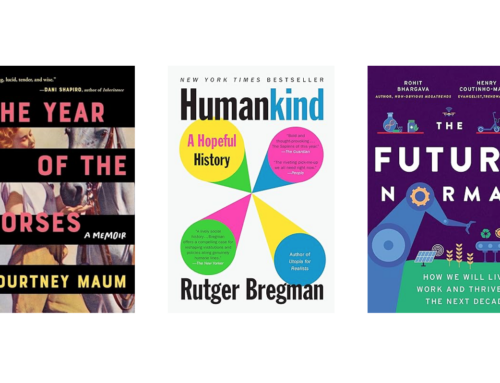Here are the questions submitted about my blog post Shoulders Back! The Man in the Park and my answers. I hope it’s helpful!
Q1
I like the physical part feeling the shoulders back but, why does it seem like some days it works and other times not so much. Could it be certain days one can feel more powerful?? Also love your blogs wish they came more often. When I read them I feel so much more powerful at the time!!!
A: I’m so glad the blogs help you feel powerful—that’s awesome, because no matter what OCD says, YOU ARE! (And see Q8 for more about feeling powerful and your inner strength).
In answer to your question: yes, on certain days you can feel more powerful than others for many reasons, including your mood, how much OCD is pestering you, how much sleep you got the night before, how motivated you’re feeling, etc. And if you’re feeling less powerful, you may have more difficulty with any ERP technique. And that’s ok. No one does ERP perfectly. I certainly don’t, as I wrote about in “I’m an OCD Therapist With OCD. And I Don’t Do ERP Perfectly: How to turn OCD’s little wins into BIG victories for your recovery.” Just be self-compassionate when things don’t go as you planned.
Q2
Is it good to imagine the visual of myself with shoulders back or is that likely to become part of a new compulsion? Thank you for this wonderful blog and this very very helpful strategy, by the way
A: I’m so glad you found the blog and strategy helpful! Unfortunately, when you have OCD, anything can become a compulsion. If visualizing yourself in a powerful pose helps you feel more confident and empowered, then that’s great. But if you start feeling compelled to do this visualization to reduce anxiety or because you just feel like you “have to,” those are warning signs that OCD may have latched onto it, and then it would be best not to use that visual.
Q3
If intrusive thoughts keep bothering you despite shoulders back therapy?
A: This probably means that you’re somehow doing compulsions, potentially mental compulsions that might have become habitual or that don’t seem like compulsions. Examples include mental replaying; justifying or trying to find alternative, more acceptable reasons you did something or something happened; analyzing; mental checking; weighing the evidence; assessing the likelihood that something will happen; or reassuring yourself, just to name a few.
Another very subtle compulsion that might be keeping the OCD going is believing what your OCD is telling you (e.g. I definitely have terminal cancer) and then changing your mood to match how you think you should feel based on what OCD is telling you (e.g. becoming depressed, grieving for your foreshortened life). This is the equivalent of not only taking a pamphlet from the guy in the park but starting to hand them out yourself, because by changing your mood (which you may not even be aware you’re doing) you’re acting as if what the guy in the park is saying is completely relevant and true.
If intrusive thoughts keep bothering you, you might try the scripting strategy I describe in “When you end up with a pamphlet” section of the blog or my next blog post, Interrupt OCD’s Mental Rituals with May or May Not.
Q4
What if you have the same fears as the man in the park and your compulsion is the news which only confirms these fears 🙁 What if your shoulders can’t hold up the world any longer?
A: First, I completely understand how you feel. In fact, I talk about having this exact feeling at the end of Chapter 2 in Fred: “My dad, satisfied I was asleep, walked away, turning off the hallway light and closing the folding door behind him. Recognizing I’d been holding my breath, I breathed out, releasing a little of the tension I held in my upper back as I fell into a fitful, dreamless sleep. The tension never seemed to totally go away, however. How could it, when I was trying to bravely hold the weight of the world on my nine-year-old shoulders?”
You’re not alone in how you feel. And, while you might not be strong enough to hold the world on your shoulders (and none of us are), you ARE strong enough to beat OCD—see Q8 for more.
To answer your question, the general way to beat OCD is to expose yourself to uncertainty and stop doing compulsions. So in your case, it sounds like this means not watching the news anymore and living with the uncertainty about the world ending. But remember this isn’t any different than any other kind of uncertainty we all live with every day, such as when we get in a car and drive (people do have accidents occasionally, but we drive around happily living with this uncertainty anyway) or when we’re away from loved ones (and we don’t know where they are or if they are ok, but we just keep doing what we’re doing without giving their wellbeing much thought). These are just two of the many examples there are of the fact that we handle living in an uncertain world quite well.
The stuff OCD scares us about is no different—it just feels different…
- because when we have an intrusive thought (“What if the world is going to end?”)
- that OCD has a reaction to (“Oh my gosh! That would be terrible! We must keep tabs on this as maybe it will help us be prepared or help prevent it!”)
- we then do compulsions (watching the news), which makes us more anxious in the long-run and makes the OCD worse.
But even though OCD says this is about what we call “content” (the world potentially ending), it’s really about anxiety. We do compulsions not to keep tabs on things or prevent them from occurring, but instead because they reduce anxiety. When we lean into anxiety and not do compulsions, that’s how we work on getting better.
For more about how this works, see Dr. Reid Wilson’s Afterword in Is Fred in the Refrigerator? Taming OCD and Reclaiming My Life.
Q5
What a great article, thanks! I wonder if you have any advice about how to manage when “the man in the park” shows up in the night when you’re laying in the bed!?
A: Yes, the man in the park can pop up at the most inopportune of times! If you’re in bed, you could use the Shoulders Back “Man in the Park” technique without trying to throw your shoulders back (as that might be hard lying down) and just go back to letting yourself fall asleep. Sometimes that might not work, however, because the man in the park is too loud and his taunts are filling your brain, making you anxious and unable to sleep. And if you’re tired, you might then end up taking a pamphlet or making eye contact. If this happens, I’d probably follow the suggestions in “When you end up with a pamphlet” section, even if it means you get out of bed for a short period of time.
Q6
How long does it take for Shoulders Back to become habitual? Is that the aim? Or is the conscious movement to physically move shoulders back supposed to remain unnatural and a conscious practice?
A: I’m not sure how long it would take, as the process of building habits can take weeks or months (or longer) depending on the person. I’ve been doing this for several years now, and to me, putting my shoulders back is still a conscious movement. It’s a powerful signal to my OCD that I mean business, and it’s way to tell it, “I’m not doing this [whatever compulsive garbage you have in mind], OCD, you got that?” It’s drawing a line in the sand: on one side was me when I was listening to OCD, still being held hostage, still doing what it wanted, and on the other side is the more empowered, confident me that tells OCD what’s what. With Shoulders Back, I’m letting OCD know I’m not going back to that other side. That I’m wise to what OCD is up to and I’m just not buying it.
But having Shoulders Back become a habitual, unconscious process would be great, too, as that means it’s so engrained that it doesn’t even require conscious thought. If you’re able to make Shoulders Back more of an unconscious practice, I’d love to hear about it!
Q7
Hi Shala, how do you work the MOMN statements and the Shoulders Back strategy when you are facing uncertainty towards harm to other people. I have had situations where I have performed COMMON actions that I rationally believe, and have confidence, will PROBABLY not hurt anybody. But that little bit of doubt tends to creep in and try to convince me to perform a compulsion. The struggle comes with trying to determine if my belief that everything is okay is rational, or if I really should perform the action fear and OCD are trying to tell me to perform.
A: Unfortunately, any attempts to rationalize your behavior is considered by OCD to be a compulsion, meaning the rationalizing reinforces OCD’s belief that what it is worried about is valid. Dr. Reid Wilson address this in the Afterword to Fred:
“You will not win over the disorder by going toe-to-toe with OCD in a battle over its frightening logic. You must work paradoxically. Is Fred in the Refrigerator? is brilliantly alive with this paradoxical strategy.  Use Shala’s memoir as your empowering inspiration. Personify OCD as this trespasser into your life, and employ your new, clever strategies to diminish the power of this intruder by moving toward uncertainty—not away from it.”
Use Shala’s memoir as your empowering inspiration. Personify OCD as this trespasser into your life, and employ your new, clever strategies to diminish the power of this intruder by moving toward uncertainty—not away from it.”
Also see the answer to Q4 above about OCD “content.” OCD is not about content. OCD is about uncertainty (as Reid mentions above), about not knowing whether what OCD is saying true. ERP is acting as if what OCD says is irrelevant—which is the essence of Shoulders Back.
And if your OCD says, “But if you act like what I’m saying is irrelevant, then someone could get hurt and we couldn’t handle that!” that’s just more content. Jon Hershfield’s book Overcoming Harm OCD does a great job of guiding you through a step-by-step process for using ERP, mindfulness, and self-compassion for dealing with harm obsessions.
Q8
Is Shoulders Back the same as fake it ’til you make it?
A: I might have said “yes” to this question a few weeks ago, but then I read The Elegant Warrior: How to Win Life’s Trials Without Losing Yourself, one of my new favorite books, and learned there’s a better way to think about this. Here’s what the author, Heather Hansen, recommends:
 “If someone tells you to fake it ’til you make it, run. Faking it doesn’t work, and it doesn’t feel good. If you lose yourself by faking it, you can never win. But you can find that thing inside of you that will help you win. … As you show it, it will grow. Show it ’til you grow it, and you end up with everything you need.”
“If someone tells you to fake it ’til you make it, run. Faking it doesn’t work, and it doesn’t feel good. If you lose yourself by faking it, you can never win. But you can find that thing inside of you that will help you win. … As you show it, it will grow. Show it ’til you grow it, and you end up with everything you need.”
For those of us with OCD, that “thing inside you” is your inner strength. You ARE strong. How do I know this? Because if you have OCD you’re living with the tenth most disabling condition in the world (Murray and Lopez, 1996). You may not be living well or the life you’d like, but OCD has NOT destroyed you (even though sometimes it might feel as though it has). You are living, and that means that you have strength. Shoulders Back as an ERP technique calls forth that strength.
One of the exercises I sometimes do with clients is a role play where I play their OCD and I ask them to take their OCD to task in return. We begin, and I start talking to them as their OCD does, in a sneering, derogatory, insulting way. Sometimes the clients will initially shrink back a little to hear someone give voice to the monster they’ve been hearing in their mind for years, but then I see it: a puffing up of the chest, a leaning forward, a decisive Shoulders Back. In that moment, clients are coming to a breakthrough realization that the way OCD talks to them is unacceptable, and that they don’t have to take it.
The powerful stance I see them adopt in that moment is a physical embodiment of the fact that they are marshaling their internal strength to take back their lives. And then they let their OCD have it, saying everything they’ve ever wanted to say to the disorder that’s been holding them hostage, that’s been trying to steal their lives. In that moment, they start to recognize just how powerful and strong they are. And from there, that inner strength just keeps growing.
Dr. Reid Wilson says in Fred’s Afterword that “OCD is a fierce, unconventional opponent in a high-stakes game of 1-on-1, and it will use an entire repertoire of skills—smack talk, cunning moves, fake-outs—all to incite fear and uncertainty … If it can get you to elevate the need for certainty above all else, it wins. It is an incredibly manipulative challenger, and if it can keep you from learning its strategy, it can control you. Before long, it has you trained.”
In other words, the only one faking it ‘til they make it is the OCD. But you can call its bluff by calling forth your inner strength with Shoulders Back—showing it and growing it.
Q9
Can you use shoulders back for pure ocd (mental rituals) ?
Absolutely! It can be incredibly effective. But if you’re having any trouble, please see my next blog post, Interrupt OCD’s Mental Rituals with May or May Not.
Q10
Sometimes, I feel like I interrupt the intrusive thought before it’s finished and try to quickly focus on what I’m doing or what’s around me. My question: Is that stopping the thought? My mental compulsions tend to be (or feel) relatively automatic. But I just don’t want to be using mindfulness as a compulsion, if that’s even possible…
Want to learn more?
 You can also see my book, Is Fred in the Refrigerator? Taming OCD and Reclaiming My Life, for more about how I use Shoulders Back in day-to-day life.
You can also see my book, Is Fred in the Refrigerator? Taming OCD and Reclaiming My Life, for more about how I use Shoulders Back in day-to-day life.
If you’d like to receive notifications of new blog posts, sign up for my Shoulders Back! newsletter, and I’ll send you OCD-taming tips & resources every month.
My blogs are not a replacement for therapy, and I encourage all readers to find a competent ERP therapist. See the IOCDF treatment provider database for a provider near you.
References
Hansen, Heather. The Elegant Warrior: How to Win Life’s Trials Without Losing Yourself (p. 90). Page Two Books. Kindle Edition.
Murray, Christopher J. L., and Alan D. Lopez. 1996. The Global Burden of Disease. Cambridge, MA: Harvard University Press.









[…] I can’t do that because then I’m putting us in danger? You misunderstand me, OCD. I can put my Shoulders Back and follow CDC and WHO recommendations and still act like you’re irrelevant. Even if what […]